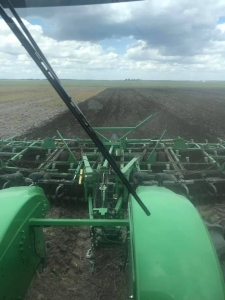
By Illinois Radio Network
SPRINGFIELD – Because of the weather and market conditions that largely are out of their control, farmers are used to dealing with high amounts of stress.
But the 2,700 farmers who responded to an annual survey conducted by the Illinois Farm Bureau (IFB) said 2019 brought levels of stress to new heights.
Record rainfall that delayed planting and harvesting was the worst culprit, with a close second being Brazil increasing its exports of corn, Illinois’ second-largest agricultural export after soybeans.
Tariffs and a reduction in exports to China, coupled with uncertainty about trade relations in general, added to the general unease, Mike Doherty, senior economist and analyst for the IFB’s Government Affairs and Commodities Division, said.
Illinois farmers had some measure of relief in 2018 after a tough prior two years, Doherty said.
“In 2016 and to some extent 2017, there was an erosion of capital and an increase in their vulnerability,” he said. “The year [2018] was for the most part an improvement, largely because of the government program payments combined with some breaks in the market combined with phenomenal soybean yields.”
Then there’s 2019.
“We weren’t all that bad off in 2018, we came out of it OK, but then 2019 came in,” Doherty said.
Because of the state’s topography – what Doherty calls the best growing conditions for a soybean-corn rotation in the world – those two crops will continue to be the backbone of Illinois agriculture. Both are grown mainly for export.
While Illinois farmers can do nothing to control the weather or what other countries grow and export, they are looking to managed trade agreements – negotiated, focused purchases of defined amounts – to prop up exports in the near future.
On the plus side, Doherty said, 2018 helped in many ways to cushion the 2019 blow, and the state has seen few failures or foreclosures result from this year’s challenging conditions.
Illinois Radio Network can be reached at [email protected].






